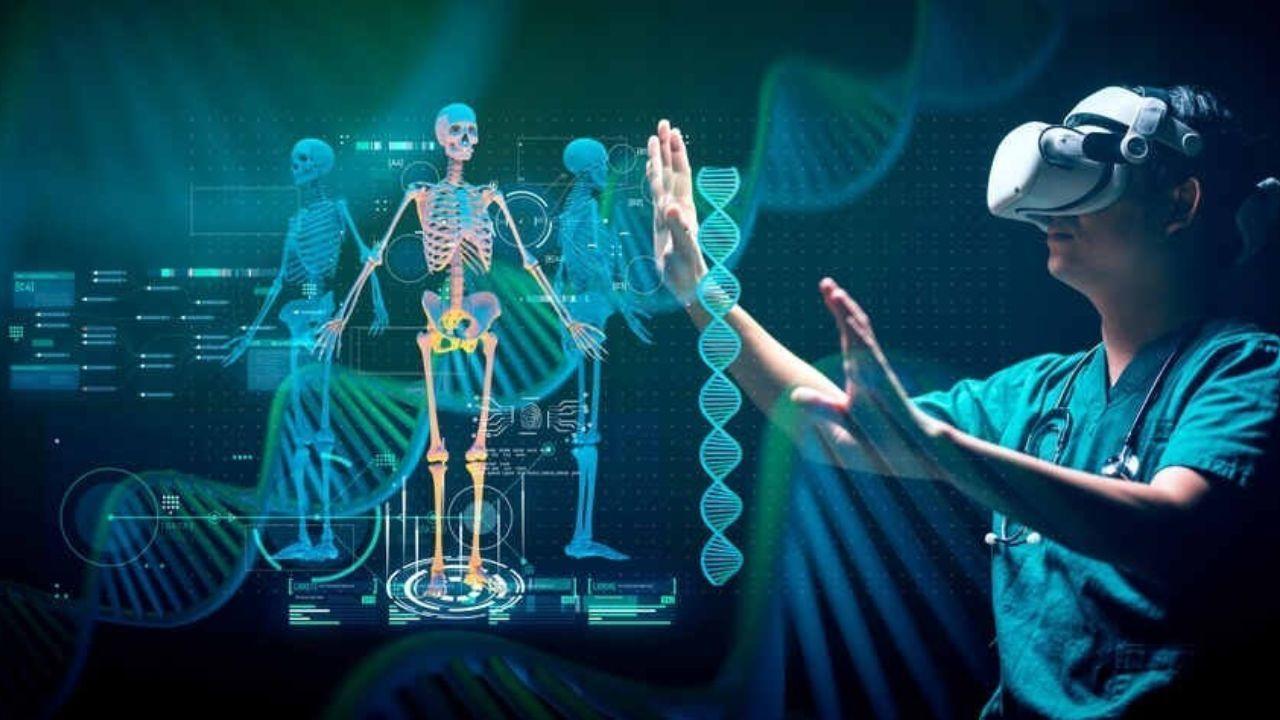
Post by: Zayd Kamal
In recent years, Artificial Intelligence in healthcare has emerged as a groundbreaking technology that is reshaping how medical professionals deliver care. From improving diagnostic accuracy to enhancing patient outcomes, AI is proving to be a game-changer in the medical field. This article delves into the various applications, benefits, and challenges of Artificial Intelligence in healthcare, providing a comprehensive overview of its impact on the industry.
Before diving into its applications in healthcare, it’s essential to understand what artificial intelligence (AI) is. AI refers to the simulation of human intelligence processes by computer systems. These processes include learning, reasoning, and self-correction. By analyzing vast amounts of data, AI can identify patterns, make decisions, and improve over time, making it a valuable tool for healthcare providers.
One of the most significant benefits of Artificial Intelligence in healthcare is its ability to improve diagnostic accuracy. AI algorithms can analyze medical images, such as X-rays, MRIs, and CT scans, to detect abnormalities that human eyes might miss. For example, AI-powered systems can identify tumors in radiology images with remarkable precision, reducing the likelihood of misdiagnosis and enabling timely treatment.
AI can analyze historical patient data to predict future health outcomes. By recognizing patterns and trends, AI systems can forecast potential health issues before they arise. For instance, predictive analytics can help identify patients at risk for chronic diseases such as diabetes or heart disease, allowing healthcare providers to implement preventive measures. This proactive approach not only enhances patient care but also reduces healthcare costs.
Every patient is unique, and Artificial Intelligence in healthcare allows for personalized treatment plans tailored to individual needs. By analyzing genetic information, lifestyle factors, and medical history, AI can recommend treatment options that are more likely to be effective for each patient. This personalized approach enhances patient engagement and satisfaction, as individuals feel their specific needs are being addressed.
AI-powered virtual health assistants are revolutionizing patient interaction with healthcare providers. These virtual assistants can answer patients' questions, provide medication reminders, and even schedule appointments. They enhance patient engagement by offering accessible support 24/7. For instance, chatbots can help triage symptoms, directing patients to the appropriate level of care while freeing up valuable time for healthcare professionals.
The process of discovering and developing new drugs is often lengthy and expensive. However, Artificial Intelligence in healthcare is streamlining this process. AI can analyze chemical compounds and predict their effectiveness in treating specific conditions, significantly reducing the time required for research and development. This innovation accelerates the introduction of new treatments to the market, potentially saving countless lives.
The integration of AI in healthcare offers numerous advantages:
Improved Efficiency: AI automates routine tasks, allowing healthcare professionals to focus on more complex patient care needs. This leads to better use of time and resources within healthcare facilities.
Enhanced Patient Outcomes: By improving diagnostic accuracy and personalizing treatment plans, AI contributes to better health outcomes for patients.
Cost Reduction: Early diagnosis and preventive care facilitated by AI can reduce hospitalizations and associated costs, making healthcare more affordable.
Data Management: AI can efficiently manage vast amounts of patient data, providing healthcare providers with valuable insights to improve care delivery.

While Artificial Intelligence in healthcare holds immense promise, it also faces several challenges:
Data Privacy and Security: With the increased use of AI comes the need for robust data protection measures. Patient data must be securely stored and processed to maintain confidentiality and compliance with regulations like HIPAA.
Bias in AI Algorithms: AI systems are only as good as the data they are trained on. If the data is biased or unrepresentative, it can lead to skewed results. Ensuring diversity in training data is crucial for fair and accurate AI applications.
Integration with Existing Systems: Implementing AI technologies in healthcare settings can be complex. It requires seamless integration with existing systems, which can be a significant barrier to adoption.
Acceptance by Healthcare Professionals: Some healthcare providers may be hesitant to adopt AI technologies, fearing they could replace human jobs. Education and training are essential to help professionals understand how AI can complement their work rather than replace it.
The future of Artificial Intelligence in healthcare looks promising. As technology continues to advance, we can expect more innovative applications to emerge. AI could play a critical role in addressing global health challenges, improving access to care, and ultimately saving lives.
For instance, remote monitoring of patients through AI can facilitate better management of chronic conditions, allowing for timely interventions. Furthermore, the use of AI in telemedicine is on the rise, providing patients in remote areas access to specialized care.
This article discusses Artificial Intelligence in healthcare and how it is changing the way doctors and patients interact. Artificial Intelligence in healthcare helps doctors make better diagnoses by analyzing images like X-rays. It can also predict health problems before they happen, creating personalized treatment plans for each patient. AI makes it easier for patients to get answers through virtual health assistants, who can remind them about medications and schedule appointments. However, there are challenges, like keeping patient data safe and making sure the AI is fair for everyone. Overall, Artificial Intelligence in healthcare is making medical care better and more efficient.
This information is provided by DXB News Network. We encourage kids and families to learn about Artificial Intelligence in healthcare and how it impacts our lives. Understanding these technologies can help everyone make informed choices about health. Stay curious and keep exploring the amazing world of healthcare
Artificial Intelligence in healthcare, AI in medicine, healthcare technology, diagnostic accuracy, predictive analytics, personalized treatment, virtual health assistants, drug discovery, patient outcomes, healthcare challenges, data privacy, AI algorithms, medical imaging, remote patient monitoring, telemedicine
#trending #latest #ArtificialIntelligence #AIinHealthcare #HealthTech #MedicalAI #DigitalHealth #HealthcareInnovation #PatientCare #Telemedicine #PredictiveAnalytics #PersonalizedMedicine #VirtualHealthAssistants #HealthData #MedicalImaging #FutureOfHealthcare #AIinMedicine #breakingnews #worldnews #headlines #topstories #globalUpdate #dxbnewsnetwork #dxbnews #dxbdnn #dxbnewsnetworkdnn #bestnewschanneldubai #bestnewschannelUAE #bestnewschannelabudhabi #bestnewschannelajman #bestnewschannelofdubai #popularnewschanneldubai

Vikrant Karyakarte: The Artist Who Paints the Rhythm of Life....Read More.

PM Modi will visit Jeddah to meet Crown Prince MBS. Talks will cover strong ties, strategy, and new MoUs. This is his first visit in his third term....Read More.














Humanoid Robots Race with Humans at Half-Marathon in China
21 humanoid robots raced alongside runners in the Yizhuang half-marathon, showcasing robotic enginee

Woman Brain-Dead After Paris Cryotherapy Accident
A woman is brain-dead after a fatal cryotherapy accident in Paris that also claimed a gym worker’s l

A Chinar Leaf in the Desert: Zubair Kirmani and the Journey of Kashmir at World Art Dubai
A Chinar Leaf in the Desert: Zubair Kirmani and the Journey of Kashmir at World Art Dubai

Carla Gía Brings the Language of Duality to World Art Dubai 2025
Carla Gía Brings the Language of Duality to World Art Dubai 2025

Not Just a Painting, It’s a Pulse: Deena Radhi at World Art Dubai 2025
Not Just a Painting, It’s a Pulse: Deena Radhi at World Art Dubai 2025